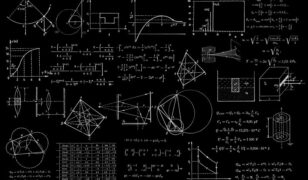DARPA posts AIE opportunity
 On August 17, the Defense Advanced Research Projects Agency posted an Artificial Intelligence Exploration (AIE) Opportunity – Automating Scientific Knowledge Extraction (ASKE) (Solicitation Number: DARPA-PA-18-02-01). Responses are due by 4:00 p.m. Eastern on September 17.
On August 17, the Defense Advanced Research Projects Agency posted an Artificial Intelligence Exploration (AIE) Opportunity – Automating Scientific Knowledge Extraction (ASKE) (Solicitation Number: DARPA-PA-18-02-01). Responses are due by 4:00 p.m. Eastern on September 17.
The Defense Advanced Research Projects Agency (DARPA) is issuing an Artificial Intelligence Exploration (AIE) Opportunity, inviting submissions of innovative basic or applied research concepts in the technical domain of automated knowledge discovery, curation, and application. This AIE Opportunity is being issued under the Program Announcement for AIE, DARPA-PA18-02. All proposals in response to the Automating Scientific Knowledge Extraction (ASKE) opportunity, as described herein, will be submitted to DARPA-PA-18-02-01. If selected, it will result in an award of an Other Transaction (OT) for Prototype agreement that will not exceed $1,000,000.
Computational models can elucidate complex systems in a predictive and explainable way, but building them is a laborious process that requires significant manual effort to gather information from experts and implement the model. The resulting models often embody the limitations of the model creator’s knowledge and biases. Further, it is rare that scientists and subject matter experts are also expert software engineers so model implementations usually do not follow software development best practices, making them prone to errors and difficult to verify or improve as new information emerges.
This AIE Opportunity is soliciting proposals to develop approaches to build, maintain, and reason over rich models of complex systems (physical, biological, social, engineered, or hybrid systems) by interpreting and exposing scientific knowledge and assumptions in existing model code and documentation, identifying new data and information resources automatically, extracting useful information (causal relations, correlations, context, parameters, etc.) from these sources, integrating this useful information into machine-curated expert models, and executing these models in robust ways. The resulting models should return rich explanations under a variety of different expert queries, and eventually be capable of generating (and testing by linking to structured data sources) machine-generated hypotheses.
Applications of interest include automatic verification of published scientific results and real-time monitoring of fragile economic, political, social, and environmental systems undergoing complex events. Efforts may apply and/or advance AI techniques such as natural language processing, knowledge-based reasoning, machine learning, and/or human-machine collaboration. DARPA’s overriding interest is in innovative approaches to extracting knowledge from scientific models.
Full information is available here.
Source: FedBizOpps








